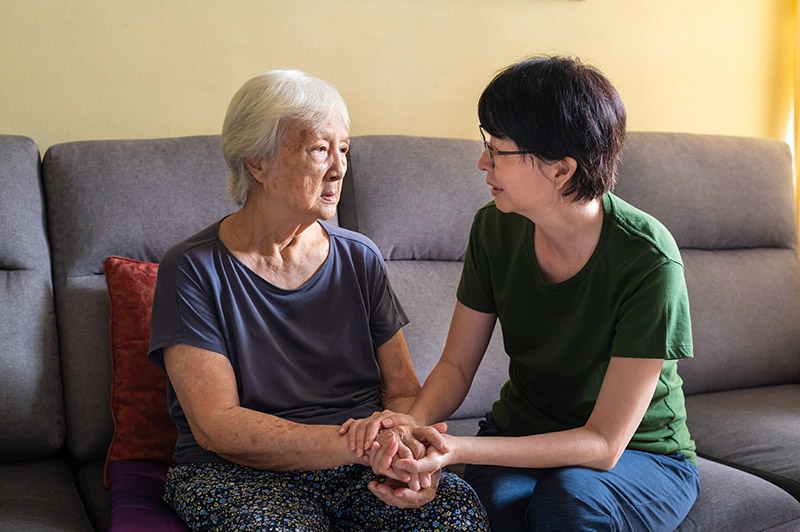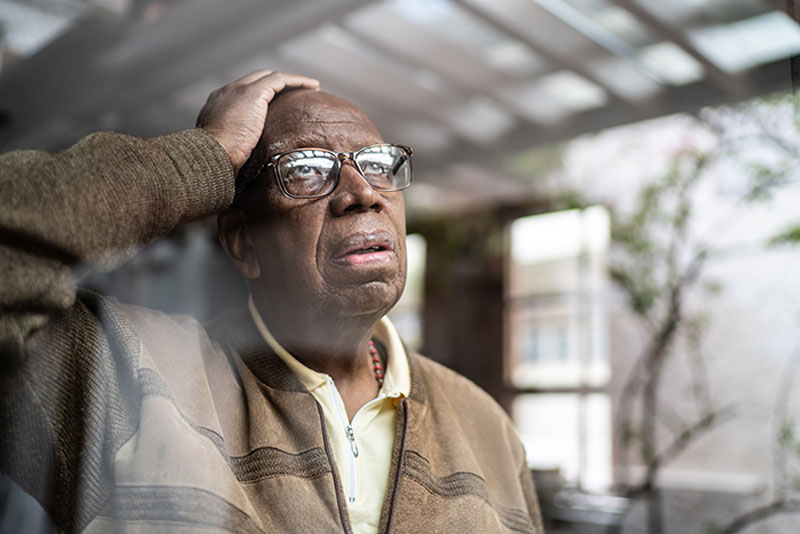
How to Make Dementia Care More Fun and Effective Through Improv Creativity, adaptability, and lightheartedness are key ingredients to make dementia care fun and effective for both caregivers and seniors. It stands to reason then that a spontaneous activity like improvisation is an excellent way to connect and engage with someone struggling with cognitive challenges. Not only does it enable you to pivot and embrace unforeseen plot twists, but it helps you to find out more about the older adult with dementia in your care. So, How Exactly Does Improv in Dementia Care Work? The objective of improv in dementia care is to meet the person in their reality and to supply them with opportunities to express themselves in whatever way is natural and comfortable. It is about establishing an environment where the person is heard, respected, and never corrected. It requires more listening than talking, and accepting any thoughts or feelings a senior loved one would like to share. Listed here are a couple of improv activity tips to try. After you have a sense of how…

How to Overcome Dementia-Related Appetite Loss One of the joys of caring for a senior loved one is preparing a favorite meal and seeing how much pleasure it can provide. When a senior is progressing through dementia, however, mealtimes can change dramatically. More than 80% of seniors with dementia experience some type of dementia-related appetite loss or problem: changes in how food tastes or smells, swallowing problems, or forgetting how to use utensils or chew food properly, for instance. Loss of appetite for someone with dementia can be especially difficult to manage. It’s important to find ways to encourage the person to get the nutrition they need, without pushing or causing distress. Our dementia care team recommends trying the following: Exercise patience. Allow plenty of time for each meal so the person never feels rushed. Rather than a typical breakfast plate loaded with eggs, bacon, and toast, serve just one food at a time, explaining what the food is as you present it. “Here are some scrambled eggs with cheese, the…

5 Surprising Things That Make Alzheimer’s Worse Alzheimer’s disease and other forms of dementia are incredibly challenging on their own. Effectively managing dementia requires a toolbox of tactics that is ever-evolving, as the symptoms and difficulties of the disease change and progress over time. Yet even while employing the most cutting-edge dementia techniques, there’s more required to help someone you love: understanding that there are certain things that make Alzheimer’s worse, and knowing how to manage those as well. If you’re caring for someone with the disease, you need to be aware of the following potential complications and contact the person’s doctor for recommendations where applicable: Hearing impairment. Untreated age-related hearing loss is linked to a rapid decline in memory. Even something as simple and easily treated as wax buildup in the ears can worsen the effects of Alzheimer’s. Too much sugar. A sugar craving is quite common in those with dementia, but can lead to increased irritability and agitation.…

Ease Life With Alzheimer’s: Create a Dementia Care Routine Have you ever awoken from a dream feeling completely disoriented? The dream seemed so real, and it takes a few minutes to regain your bearings. For someone with dementia, this disorientation is part of everyday life. Our goal in caring for someone with dementia is to help provide as much stability as possible, and one of the simplest ways to accomplish this is to create a dementia care routine. How Can a Dementia Care Routine Help? Short-term memory loss makes it challenging for someone with dementia to learn and remember new things. A familiar routine helps build self-confidence, reinforce a feeling of independence, and minimize anxiety. To create the most comfortable routine for a family member with dementia, try the following: Follow their lead. Keep in place any routines the older adult already has established: a morning shower before breakfast, meals at the same seat at the table as always, an afternoon TV program, a walk after dinner, etc. Modify as needed. Over time, as the disease…

How to Help Overcome Dementia Restlessness Wandering. Pacing. Fidgeting. When you begin to notice these signs of dementia restlessness in someone you love, it’s time for you to take action before they intensify to agitation, aggression, or leaving the home. But figuring out why the older adult is feeling uneasy is sometimes half the battle. For starters, consider the following questions: Could the senior be hungry or thirsty? Have they been sedentary too long and need to move? Is anything causing the person physical discomfort or pain? Are there too many distractions in the room? Are there visitors who could be producing distress or anxiety? Might they need to use the restroom? Are they bored? If you’re uncertain, try fulfilling potential physical needs first. Ask if they would be interested in a snack or something to drink. Watch for nonverbal clues which could indicate discomfort, and contact the physician right away for direction if you suspect the individual is in pain. If the issue seems to be emotionally driven, try…

The Perfect New Year’s Resolutions if You’re Caring for Someone With Alzheimer’s People around you may be resolving to lose ten pounds, exercise more, and eat healthier, but if you’re caring for someone with Alzheimer’s, just getting through the day may be ambitious enough. The very thought of aiming to improve upon any area of your life in this unsettling time may be overwhelming. At Amy’s Helping Hands, our Windsor, Ontario elder care team would like to offer you a bit of encouragement. We know the work you are doing can be both rewarding and frustrating, and we are here to support you in any way we can. To start, we have gathered some resolutions exclusively for Alzheimer’s caregivers that will actually help make your journey a little bit easier. What Resolutions Are Good for a Dementia Caregiver? Take a deep breath and a few minutes to consider the following: Set aside time for self-care. We know this might be not as easy as it sounds. But taking time for yourself is crucial to both your wellbeing and that of the individual you are caring for. It does…




















